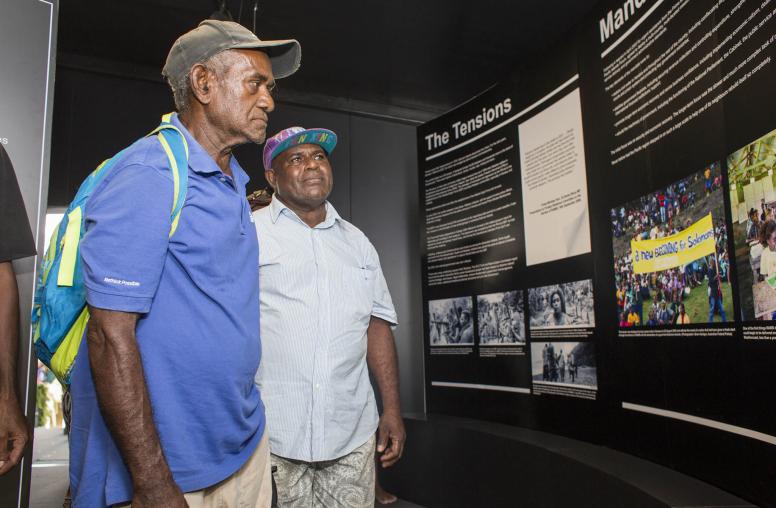Inaugural Nelson Mandela Lecture
Read the Event CoverageThe U.S. Institute of Peace is honoring Nelson Mandela’s life, work, and passion for peace by establishing the Nelson Mandela Lecture series. His deep commitment to peace continues to inspire our work and imbues us with a spirit of hope that it is possible to overcome all obstacles standing in the way of a better world. As Mandela said, “To be free is not merely to cast off one’s chains, but to live in a way that respects and enhances the freedom of others.” The online event was hosted by USIP Chair Stephen J. Hadley and President Nancy Lindborg.
Nelson Mandela embodied much of what the USIP teaches and trains about conflict resolution: an understanding of when and how to negotiate and the courage to assume the ultimate responsibility for peace. In South Africa, USIP was involved in the early days of the Truth and Reconciliation Commission in the mid-1990s. The Institute continues to do groundbreaking research and work on national dialogues, reconciliation and inclusive peace processes. Today, USIP remains engaged in peacebuilding on the African continent and around the globe.
Ambassador Cheryl Carolus, a leader in business and civil society, is the Executive Chairperson of Peotona Group Holdings. Amb. Carolus previously held senior leadership positions in the liberation movement in South Africa. She worked closely with Nelson Mandela over many decades, and helped to negotiate the new South African constitution.
Transcript of Ambassador Cheryl Carolus' remarks as prepared
Keynote Speaker
Ambassador Cheryl Carolus
Chairperson of the Constitutional Court Trust
Former South African High Commissioner to the Court of St James (Ambassador to the United Kingdom, 1998-2001)
Former Deputy Secretary General of the African National Congress
Speakers
Nancy Lindborg, Welcome
President, U.S. Institute of Peace
Rep. Karen Bass (D-CA)
37th District of California, U.S. House of Representatives
Ambassador Johnnie Carson, Introduction
Senior Advisor, U.S. Institute of Peace
Andre Pienaar
Founder, C5 Capital
Member, U.S. Institute of Peace International Advisory Council




